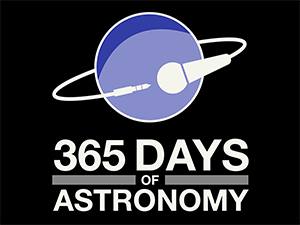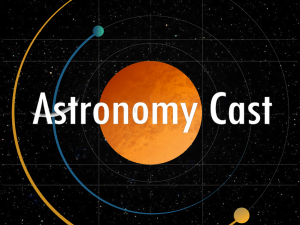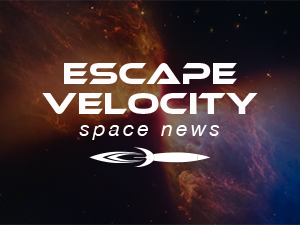
Asteroid Day, the official United Nations’ day of global awareness and education about asteroids, has announced worldwide events for the week of 25-30 June. Co-founded by astrophysicist and famed musician Dr. Brian May of the rock group Queen, Apollo 9 astronaut Rusty Schweickart, filmmaker Grig Richters, and B612 president Danica Remy, Asteroid Day began with two major events in 2015 and has grown to more than 2,000 self-organized events worldwide.
Asteroid Day events will address science as well as government and private-sector initiatives to study asteroids, and particularly advanced efforts to develop greater detection, tracking and deflection techniques. Recent news, including the asteroid impact in Botswana, spotted only hours before impact this month, and the discovery last October of ‘Oumuamua, the first known interstellar object to pass through the solar system, has renewed the focus on asteroid missions, such as ESA’s AIM/Hera and NASA’s NEOCam. Additionally, results from a recent Pew Research Center independent survey showed the American public favors greater funding for planetary science.

Asteroid Day events are independently produced by space agencies, universities, science centers, planetariums, observatories, museums, schools, theaters, libraries, local governments and other civic organizations. Most events are aimed at citizens of all ages, and are free of charge; selected events can be viewed on the Asteroid Day website.
As in previous years, the European Space Agency (ESA) is strongly supporting Asteroid Day events in 2018. On Friday, 29 June, ESA senior managers, including Director General Jan Wörner, asteroid mission experts and ESA astronaut Matthias Maurer, will participate in Asteroid Day LIVE from Luxembourg. On 30 June, the European Southern Observatory (ESO) and ESA are teaming up to produce a live webcast from the new ESO Supernova Planetarium & Visitor Centre in Garching, near Munich, Germany, packed with expert interviews, news and updates and some of the most recent asteroid science results, starting at 13:00 (1:00 pm) CEST. Watch live via http://www.esa.int/asteroidday.
ASTEROID DAY LIVE FROM LUXEMBOURG
29 June-1 July: 48-hour global broadcast -Ask your questions on Twitter, live during the broadcast at: #AsteroidDayLIVE and learn more about the broadcast and participants at https://asteroidday.org/live/

In 2017, the Asteroid Foundation debuted the first ever 24-hour live conversation about asteroids, broadcast from the Broadcasting Center Europe (BCE) studio at RTL City in Luxembourg. Asteroid Day LIVE returns in 2018, with 48 hours of content and commentary from experts around the world, hosted by Prof. Brian Cox, British physicist, author and BBC commentator. Prof. Cox will host astronauts, scientists, physicists, government officials from numerous countries, and special guests who serve as Asteroid Day ambassadors and asteroid experts.
Asteroid Day LIVE will be distributed via a dedicated satellite, available on local channels subscribing to the SES satellite network, and via the Asteroid Day website. Media outlets can download the feed directly from the satellite via CDN (instructions here), or request information by contacting PR@AsteroidDay.org
PRESS BRIEFING: Update on Asteroid Missions
28 June: 16:00 CEST; 10:00 am EDT
Asteroid Day will host a global press conference for reporters on 28 June, featuring asteroid experts, live in Luxembourg and live-streamed around the world. A media invitation will be issued on 26 June with details on how to participate.
2018 ASTEROID DAY EVENTS
Full listing can be accessed at http://www.AsteroidDay.org
A sampling of local events and films (to date):
Songwe Region, Tanzania. Lt. Chiku Chiku Gallawa will showcase the Mbozi meteorite, the sixth largest in the world; 40,000 participants expected to attend.
National Space Centre, Leicester, UK has created Space Lates, with planetarium shows, VR experience and demos.
Osservatorio Copernico, Rimini, Italy. The Park of the Observatory presents a major exhibition of meteorites from international collectors and an inflatable planetarium with telescopes to study the planets and stars.
ESO Supernova Planetarium & Visitor Centre, Garching, Germany will host a live broadcast on recent asteroid science results
Perot Museum of Nature and Science, Dallas, TX will host conversations with experts
Museum of Modern Art, New York, NY, will be showcasing the sleek new Stellina Telescope
National Air and Space Museum, Washington, DC will host US Astronaut Dr. Thomas Jones, NASA and other planetary experts, with special presentations and exhibits within NASM.
AIAA Planetary Defense and Asteroid Exploration Conference, Los Angeles, CA
Kennedy Space Center, Titusville, FL, will host US Astronaut Nicole Stott, and special public presentations and activities.
Discovery Channel, a primary media partner of Asteroid Day, has produced specials about asteroids, and will showcase a VR presentation and other films on their worldwide channels.
Scientists Rock, a seven-part series about asteroids, can be viewed on the Asteroid Day website. The series is narrated by famed astrophysicist Neil deGrasse Tyson, with interviews with UK Astronomer Royal Lord Martin Rees, Dr. Brian May, Peter Gabriel, and scores of astronauts and asteroid experts.

Asteroid Day Press Contact:
Diane Murphy
+1 310.658.8756
pr@asteroidday.org
Asteroid Day was co-founded in 2014, by Dr. Brian May, astrophysicist and lead guitarist for the rock band Queen, Danica Remy, B612 President, Apollo astronaut Rusty Schweickart, and filmmaker Grig Richters. Asteroid Day is held on 30 June each year to mark the date of Earth’s largest asteroid impact in recorded history, the Siberia Tunguska event, which devastated over 2,000 square kilometers of forest in 1908. In 2016, the United Nations declared Asteroid Day to be a global day of education to raise awareness about asteroids. Major sponsors of Asteroid Day include the Government of Luxembourg, B612 Foundation, Broadcasting Centre Europe (BCE), SES, and Tomorrow Street, a joint venture of Vodaphone and Technoport. Asteroid Day is a program of the Asteroid Foundation, a Luxembourg-based nonprofit organization.



